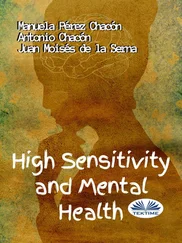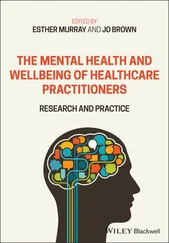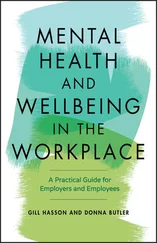We hope your exploration so far—these first stairs and first rooms of your mansion—has been an insightful experience. You know more about yourself now and that probably feels good, if somewhat daunting. Now, let’s take the next steps and explore your core in terms of personal traits, characteristics, or habits—in other words, your virtues . Philosophers, ethicists, and psychologists from at least the time of Aristotle have identified important virtues (Jordan & Meara, 1990; Meara et al., 1996; Peterson & Seligman, 2004; Vasquez, 1996), many of which are relevant and desirable for psychotherapists.
Peterson and Seligman (2004) have outlined six basic virtues along with associated character strengths, outlined in Table 1.1. For our purposes, we can consider all of them virtues. This is not an exhaustive list, and we invite you to think of others that might be important for you.
Table 1.1 Virtues and Character Strengths (From Peterson & Seligman, 2004).
| Wisdom and knowledgeCreativityCuriosityOpen-mindednessLove of learningPerspectiveCourageBraveryPersistenceIntegrityVitalityHumanityLoveKindnessSocial intelligenceJusticeCitizenshipFairnessLeadershipTemperanceForgivenessHumilityPrudenceSelf-regulationTranscendenceAppreciation of beauty and excellenceGratitudeHopeHumorSpirituality |
As you consider your (current and future) virtues and their relationship to your professional behavior, keep a few important points in mind. First, others can only infer our virtues from our behavior. We may not be good at expressing our virtues, or the right combination of virtues in the right amounts. Thus, we may think we are acting in accordance with our highest virtues, but others—colleagues, clients, state licensing boards—might perceive a failure of virtue. In these situations, our intent to display virtues is not as important as the behavior itself. For example, we may display courage in the wrong way by lying in court to secure our client’s custody of their children. “I was trying to be helpful” is not usually a good defense of unethical actions. When choosing actions, we need to consider the virtues that it looks like we’re expressing, not only the ones that we are intending to express.
Second, too much or too little of a virtue can be problematic. For example, too little compassion leads to indifference and too much compassion may lead to problems like taking too much responsibility for clients or enabling their self-defeating behaviors. Another example: Too little humility leads to arrogance and too much humility can lead to self-debasement and timidity.
Third, virtues do not exist in isolation; most behaviors reflect multiple virtues in combination. Consider the virtue of truthfulness. Sometimes we don’t tell a client the entire truth. For instance, we may not tell a client in couples therapy what their partner said about them in a private therapy session. Our virtue of truthfulness is tempered by virtues such as respectfulness (the partner shared impressions in private and expects their privacy to be respected) and prudence (sharing the information at this time in therapy may cause more harm than good). The ability to consider and express the right combinations and amounts of virtues is a virtue in itself—called practical wisdom .
We suggest that, along with practical wisdom, the virtues of courage (Angelou, cited in Ju, 2008), integrity, humility, and prudence are central. Courage is necessary for us to be in contact with our core, even in difficult situations, and to exercise our practical wisdom consistently. Integrity is the state of having our other virtues in proper proportions and balance. Humility is the awareness that we may not be fully competent, aware, and virtuous in every situation. Prudence refers to the habit of acting cautiously, with due regard to the potential consequences of our behavior. Some other virtues that psychotherapists might cultivate include compassion, respectfulness, and truthfulness.
As we did with needs, motives, and values, we can separate virtues into personal and professional, with a subset of moral virtues. We invite you to consider the moral virtues that are currently part of your core and those you wish to cultivate in your professional activities.
Part 1: Write down the list of virtues from Table 1.1, along with any others you want to consider. Next to each one of them, rank how well you express that virtue in your life—which includes having the right amount of the virtue, and in optimal combination with other virtues. (You might want to rank them in terms of how much others would say you express these virtues.) The scale runs from 1 to 10 (1—not at all to 10—expressed every possible time). For those virtues you demonstrate frequently, answer this question: “When I don’t express ____ as a virtue, I end up being and/or feeling _____.” For example, if you consider yourself a compassionate person most of the time, when you are not compassionate you might feel (a) frustrated and get in a person’s way by making a decision for them or (b) apathetic and decide to distance yourself and not provide support or guidance they might need.
Part 2: Think about several kinds of situations you face in your life and see if there are variations in your expression of virtues. For example, if you thought of truthfulness, how does the amount or expression of truthfulness change depending upon the people you are dealing with, the type of situation, the kinds of behavior called for, and other considerations? Think, for example, about somebody you are very close to, somebody with whom you have a professional relationship, and somebody who is merely an acquaintance. Think about a work situation, a personal situation, and/or a family situation.
Part 3:
What would your friends consider your greatest virtue? Your weakest?
What do you hope your clients will say about your virtues?
What do you hope your colleagues will say about your virtues?
What virtues will you most want to develop in your role as a psychotherapist?
What is your plan for how you might develop these virtues?
Social identities refer to the sense of who we are, based on group membership, and are central aspects of identity for many of us. The following is a short list of social identities: race, ethnicity, gender, social class, religion, worldview, able-bodiedness, and sexual orientation. Social identities could include assumptions, biases, and blind spots regarding how we view both ourselves and others. We encourage you to take some time, perhaps in your journal, to uncover and explore how these identities contribute to your core and how they will contribute to your professional/ethical identity. We will address social identities and issues of privilege and oppression in Chapter 2.
The Ethics Autobiography—Part 1
Along with our colleagues, we (Bashe et al., 2007) have used the ethics autobiography frequently over the years in our undergraduate and graduate ethics courses. We use it in our class discussions, and we invite you to use it as one way to self-reflect about your core and your ethical identity. Think of it as a walking stick as you climb the staircase!
We’ll introduce Part 2of the autobiography in Chapter 4, after we’ve introduced the basics of the culture of psychotherapy. For now, Part 1is a chance to apply much of what you have explored of your needs, motivations, values, virtues, and social identities. In addition, there are some new items for you to consider.
Journal Entry: Ethics Autobiography—Part 1
Читать дальше












